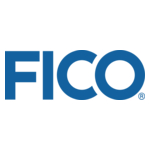FICO Scores Remain Most Widely Used in the Securitization Market, Instilling Lender Confidence Despite Inflation Highs and Economic Challenges
Mercator Advisory Group study finds that 97% of asset-backed securitizations rely on FICO® Scores
SAN JOSE, Calif.–(BUSINESS WIRE)–Recent research from Mercator Advisory Group, a leading, independent research and advisory services firm exclusively focused on the payments and banking industries, found that asset-backed securitizations (ABS) continue to rely heavily on the FICO® Score as a risk and opportunity metric used to indicate credit quality in capital markets. The Mercator study found that the score was a critical indicator for lenders in eight collateral classes representing 97% of filings across: Auto Finance (prime and subprime), Auto Leasing, Consumer Finance, Credit Cards, Motorcycle Finance, Student Loans, and Timeshares.
As lenders continue to navigate economic uncertainty, while facing rising interest rates and consumer price increases, lenders have continued to use FICO® Scores when they brought asset-backed securitizations to Wall Street. Mercator Advisory Group has reviewed public ABS issued over the last 12 months in eight asset classes in the U.S. between 2016 and 2022 to examine FICO® Score usage. In the most recent period, covering 1Q2022, more than $41.9 billion in receivables were placed into the market.
“Despite the recent growth in inflation and volatile market activity, investors continue to rely on FICO® Scores as a vital tool in the lending and securitization market,” said Brian Riley, director at Mercator Advisory Group’s Credit Advisory Service. “Our study found that asset-backed securitizations overwhelmingly rely on the metric because the FICO Score is consistent, predictable, and reliable.”
FICO® Scores are used throughout the credit lifecycle, from acquisitions to application screening, and credit management. One reason that the score plays such an important role in the ABS process is that it is a risk management metric used everywhere throughout the payment function. Lenders understand what the score means and know it is predictive across consumer collateral classes.
Mercator Advisory Group also recently released a white paper, “Credit Scoring, Fintech, and Consumer Loans: Why AI Scoring Models Do Not Replace the FICO Score,” that explores the role of credit scores and how FICO® Scores compare with alternative scoring models. The paper highlights the evolution of the FICO Score, first as a measure of risk, then transforming into a means of simplifying underwriting and account management, lending to its dependability as investors continue to rely on the score. This paper provides insights on how alternative and proprietary scores are being used in conjunction with FICO scored portfolios for asset-backed receivables.
The whitepaper can be downloaded at: https://www.fico.com/sites/default/files/upload_files/Credit-Scoring-FinTech-and-Consumer-Loans-4-29-22.pdf.
About FICO
FICO (NYSE: FICO) powers decisions that help people and businesses around the world prosper. Founded in 1956 and based in Silicon Valley, the company is a pioneer in the use of predictive analytics and data science to improve operational decisions. FICO holds more than 195 US and foreign patents on technologies that increase profitability, customer satisfaction and growth for businesses in financial services, telecommunications, health care, retail and many other industries. Using FICO solutions, businesses in more than 100 countries do everything from protecting 2.6 billion payment cards from fraud, to helping people get credit, to ensuring that millions of airplanes and rental cars are in the right place at the right time.
Contacts
Katie O’Connell
[email protected]
+1 510-621-9832





































